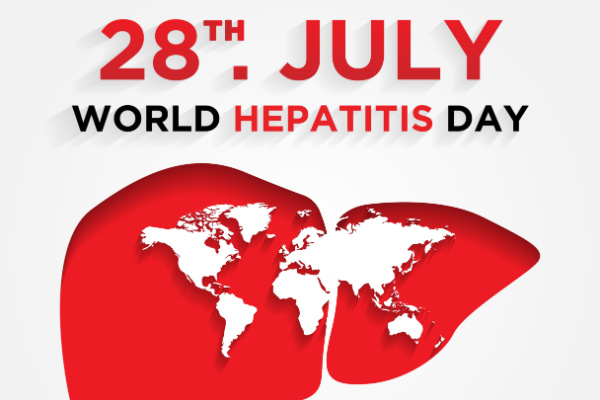World Hepatitis Day (WHD) is recognized annually on July 28th. This day is our opportunity to step up national and international efforts on hepatitis, encourage actions and engagement by individuals, partners and the public and highlight the need for a greater global response.
July 28th was chosen because it’s the birthdate of Dr. Baruch Blumberg (1925–2011). Dr. Blumberg discovered the hepatitis B virus in 1967, and 2 years later he developed the first hepatitis B vaccine. These achievements culminated in Dr. Blumberg winning the Nobel Prize in Physiology or Medicine in 1976.
Organizations around the world, including the World Health Organization (WHO) and the Centers for Disease Control and Prevention (CDC), commemorate WHD to raise awareness about viral hepatitis, which impacts more than 354 million people worldwide. WHD creates an opportunity to educate people about the burden of these infections, CDC’s efforts to combat viral hepatitis around the world, and actions people can take to prevent these infections.
Hepatitis is an inflammation of the liver, most commonly caused by a viral infection, and is comprised of a group of infectious diseases more commonly known as hepatitis A, hepatitis B, hepatitis C, hepatitis D, and hepatitis E. Viral hepatitis affects millions of people worldwide, causing both acute (short-term) and chronic (long-term) liver disease. These five types are of greatest concern because of the burden of illness and death they cause and the potential for outbreaks and epidemic spread.
Viral hepatitis causes more than one million deaths each year. While deaths from tuberculosis and HIV have been declining, deaths from hepatitis are increasing.
Check out the World Hepatitis Alliance’s (WHA) World Hepatitis Day website to help make sure the world knows that “Hepatitis Can’t Wait.” The WHA has customizable campaign resources in a variety of languages, and ideas for ways you and your organization can get involved.
—
Photo Credit: fuad3.0 / Shutterstock.com
